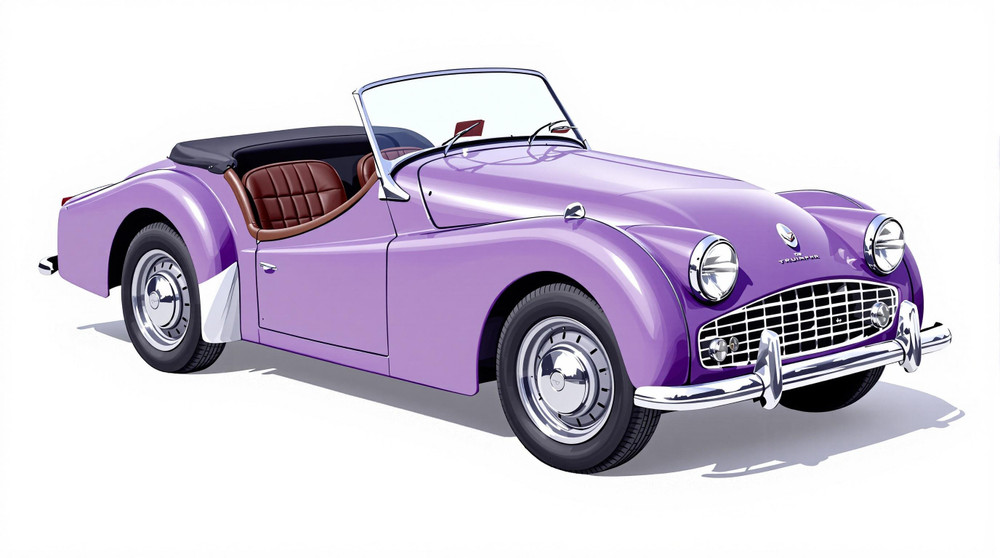Image of 1957 Triumph Tr3, Note: These illustrations use artistic license and may differ from actual historical models.
Performance Metrics
Fundamental Metrics
Emotional Appeal
MMP Rating
| Engine Specifications | |
|---|---|
| Engine: | Inline 4 |
| Displacement: | 1991 cc |
| Horsepower: | 95-100 hp |
| Torque: | 117 lb-ft |
| Compression Ratio: | 9.0:1 |
| Ignition System: | Coil and distributor |
| Cooling System: | Water-cooled |
| Performance Specifications | |
| 0-60 Time: | 10.8 seconds |
| 1/4 Mile Time: | Estimated 17.5 seconds |
| Top Speed: | 105 mph |
| Transmission and Drive | |
| Drive Type: | Rear-wheel drive |
| Transmission Type: | 4-speed manual |
| Fuel and Efficiency | |
| Fuel System Type: | Twin SU carburetors |
| MPG: | 25-30 mpg |
| Dimensions and Brakes | |
| Brakes: | Front disc brakes, rear drum brakes |
| Wheelbase: | 88 inches |
| Weight: | 2100 lbs |
Note: Specifications for classic cars are given to the best of our ability, considering the limited and variant data available.
Introduction
The 1957 Triumph TR3 is a quintessential British sports car that captures the essence of post-war automotive enthusiasm. Born from the storied assembly lines of the Standard-Triumph Motor Company, this roadster carved its niche in the hearts of driving purists and collectors alike. Its significance extends beyond mere aesthetics; the TR3 was a symbol of Britain's recovery and industrial might in the 1950s. One unique aspect of this vehicle's history is its notable participation in prestigious rallies and races, cementing its reputation for performance and durability.
Design and Innovation
With its cutaway doors, pronounced grille, and sleek body lines, the 1957 Triumph TR3 exudes a timeless charm. The exterior styling is both aggressive and elegant, a testament to the design ethos of the era. Inside, the cabin is a blend of functionality and simplicity, with an emphasis on driver engagement. Materials such as leather and polished wood were commonly used, providing a sense of luxury to match its sporty demeanor.
The TR3 introduced several technological advancements for its time, including front disc brakes that were a rarity among cars in its class. As for color options, it came in a variety of hues with Signal Red and Powder Blue being among the most popular choices. The roadster was predominantly available as a two-seater convertible, with an optional hardtop for those seeking more protection from the elements.
Historical Significance
The Triumph TR3's impact on automotive design was profound. It was one of the first mass-produced cars to offer disc brakes, setting new standards for safety and performance. Its blend of style, affordability, and driving pleasure set it apart from contemporaries and influenced future sports car designs.
Performance and Handling
The 1957 Triumph TR3 was no slouch in performance; it boasted a top speed of around 105 mph and could accelerate from 0-60 mph in approximately 10.8 seconds—a respectable figure for its time. Handling was characterized by direct steering and a firm ride that communicated the road's texture to the driver with unfiltered clarity. The symphony of its 2-liter four-cylinder engine provided an exhilarating soundtrack to spirited drives through winding country roads or along coastal highways.
Ownership Experience
The TR3 served various roles from a reliable daily driver to a weekend show car or even as a competitive racer in club events. Maintenance is relatively straightforward due to its simple mechanical design, making it an accessible classic for enthusiasts who wish to handle repairs themselves. However, parts availability can be challenging at times due to its age.
Fun Facts
A few interesting tidbits about the TR3 include its appearance in multiple films and television shows, adding to its iconic status. While not known for setting outright speed records, it did achieve success in endurance racing and rallies. Criticisms often centered around its lack of creature comforts compared to modern vehicles—an expected trade-off for driving purity.
Collector's Information
The current value range for a well-maintained 1957 Triumph TR3 can vary widely but typically falls between $20,000 to $40,000 depending on condition and provenance. Approximately 13,377 units were produced during that year alone, making it relatively rare but not exceedingly so. Over time, values have generally appreciated as classic car enthusiasts seek out models that offer an authentic vintage driving experience.
Conclusion
The 1957 Triumph TR3 stands as more than just a car; it's a piece of motoring history that embodies the spirit of adventure and freedom that defined an era. Its combination of style, performance, and historical significance ensures that it remains a cherished classic among collectors and driving enthusiasts around the world.
1957 Triumph Tr3 Catalog of Parts
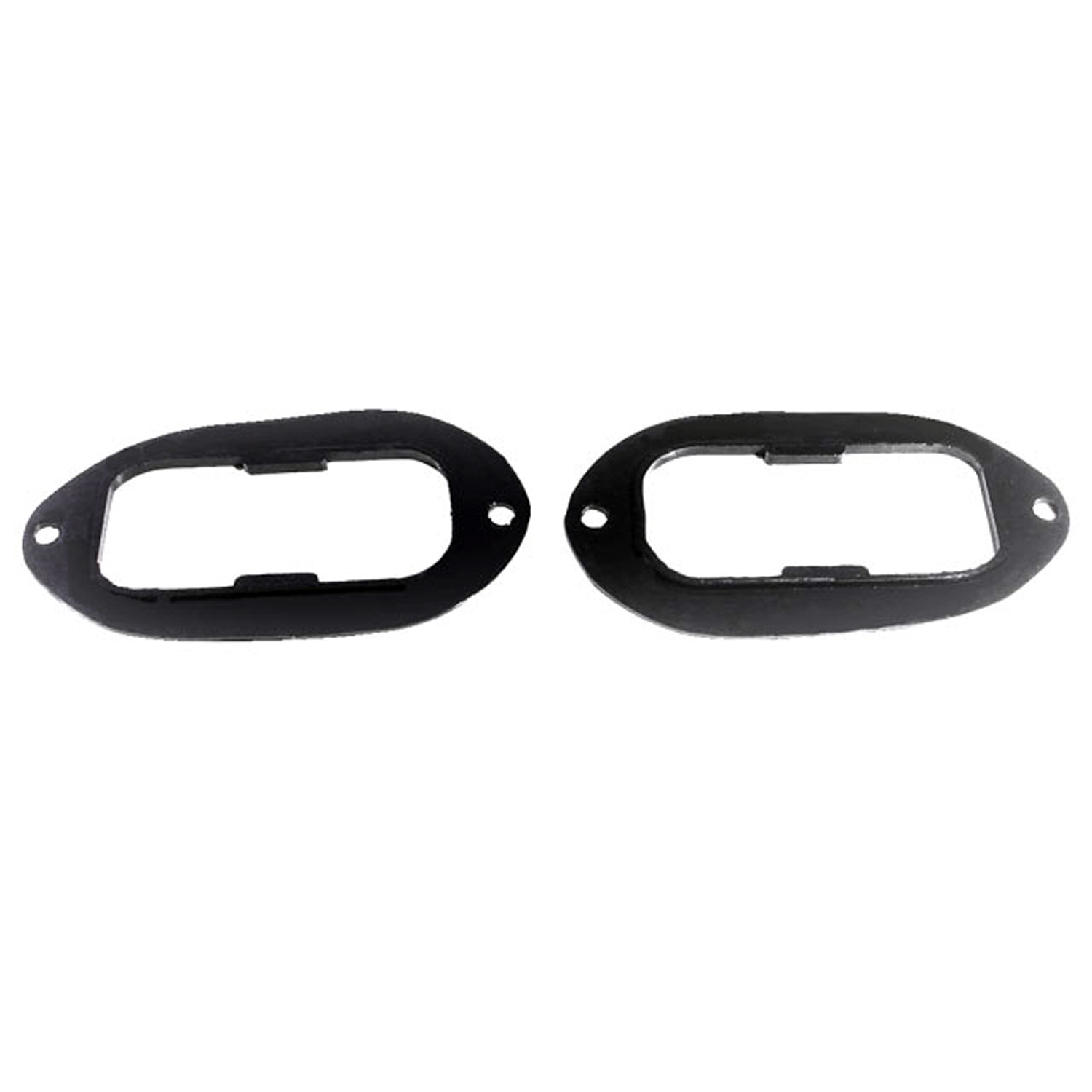 1957 Triumph TR3 Tail-light Lens Gaskets. Pair-LG 3000-140Tail-light Lens Gaskets. Pair
1957 Triumph TR3 Tail-light Lens Gaskets. Pair-LG 3000-140Tail-light Lens Gaskets. Pair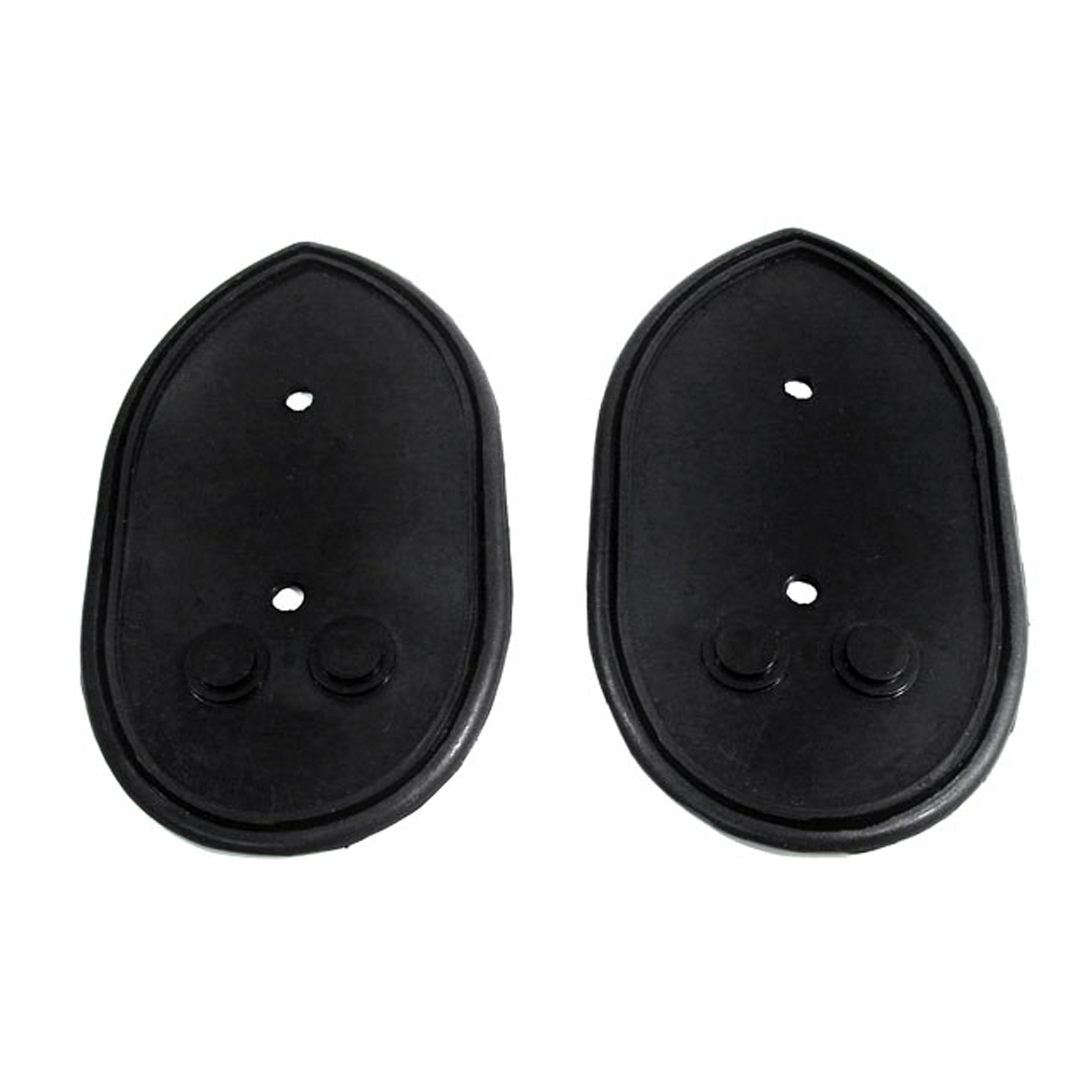 1957 Triumph TR3 Tail-light Pads. 3-1/4" wide X 5-1/2" long. Pair.-MP 999-ATail-light Pads. 3-1/4" wide X 5-1/2" long. Pair.
1957 Triumph TR3 Tail-light Pads. 3-1/4" wide X 5-1/2" long. Pair.-MP 999-ATail-light Pads. 3-1/4" wide X 5-1/2" long. Pair.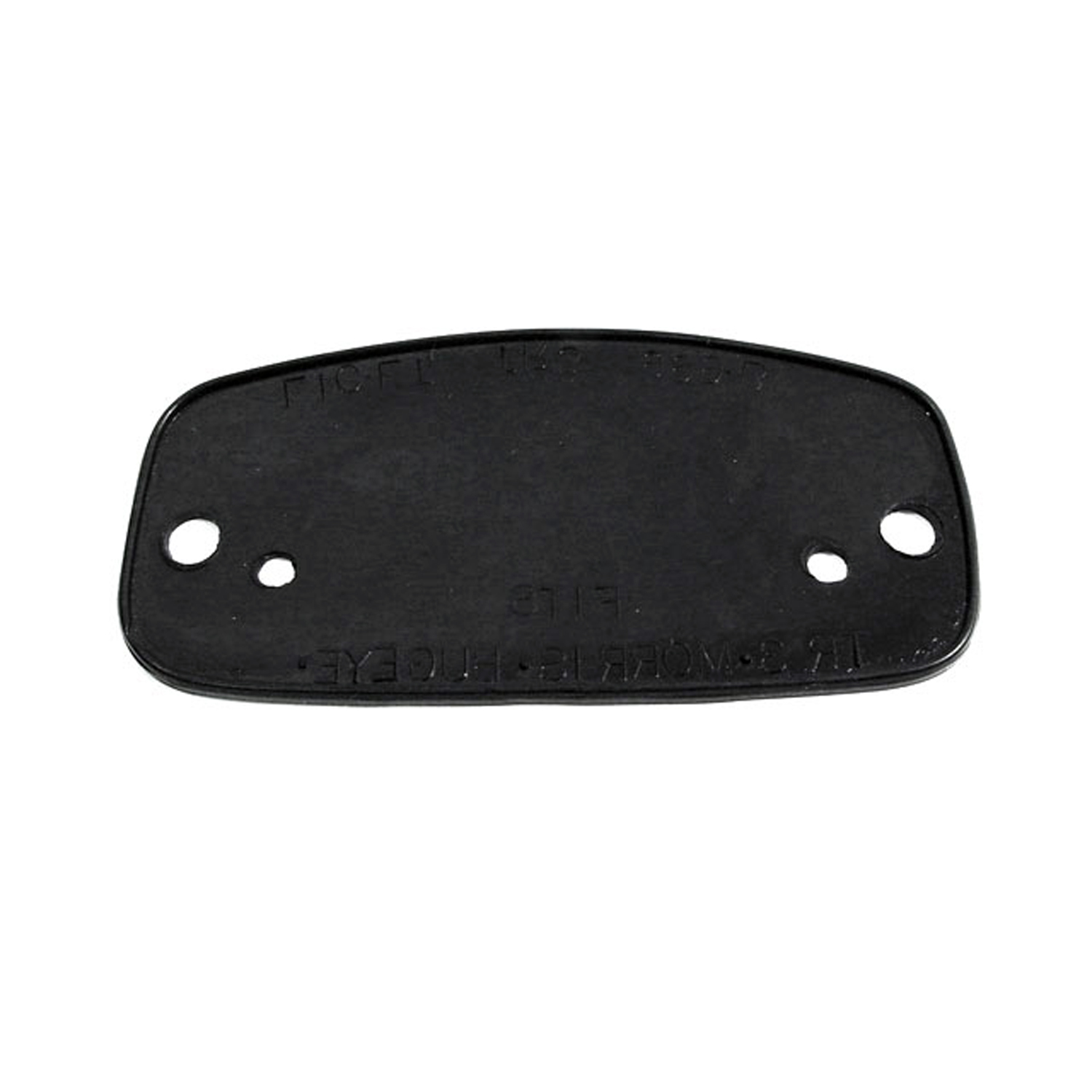 1957 Triumph TR3 License Light Pad. 4-7/8" wide X 2-1/2" long. Each-MP 999-BBLicense Light Pad. 4-7/8" wide X 2-1/2" long. Each
1957 Triumph TR3 License Light Pad. 4-7/8" wide X 2-1/2" long. Each-MP 999-BBLicense Light Pad. 4-7/8" wide X 2-1/2" long. Each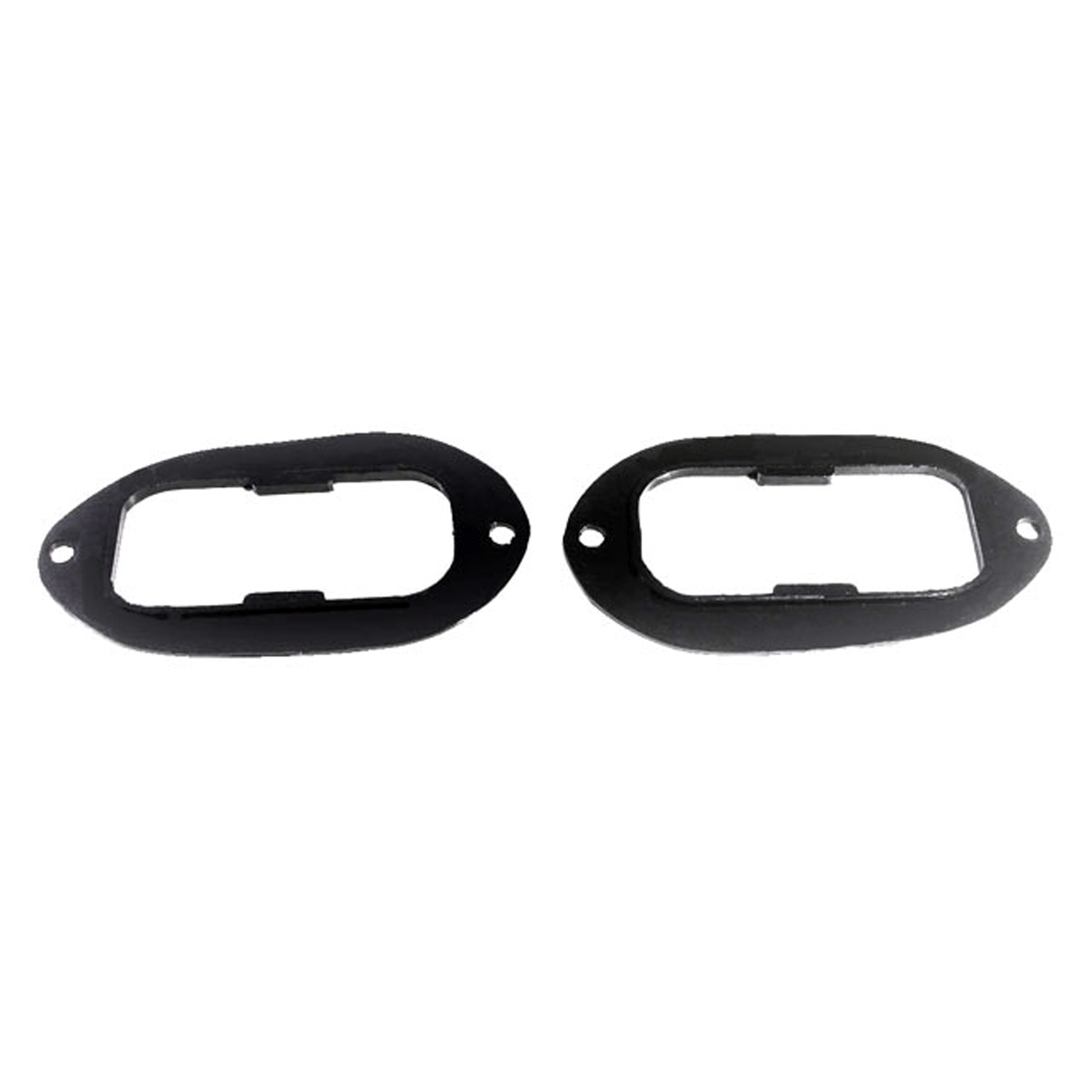 1957 Triumph TR3 Tail-light Lens Seals. Replaces OEM #574634-MP 999-DTail-light Lens Seals. Replaces OEM #574634. 2-1/2" wide X 4-7/8" long. Pair
1957 Triumph TR3 Tail-light Lens Seals. Replaces OEM #574634-MP 999-DTail-light Lens Seals. Replaces OEM #574634. 2-1/2" wide X 4-7/8" long. Pair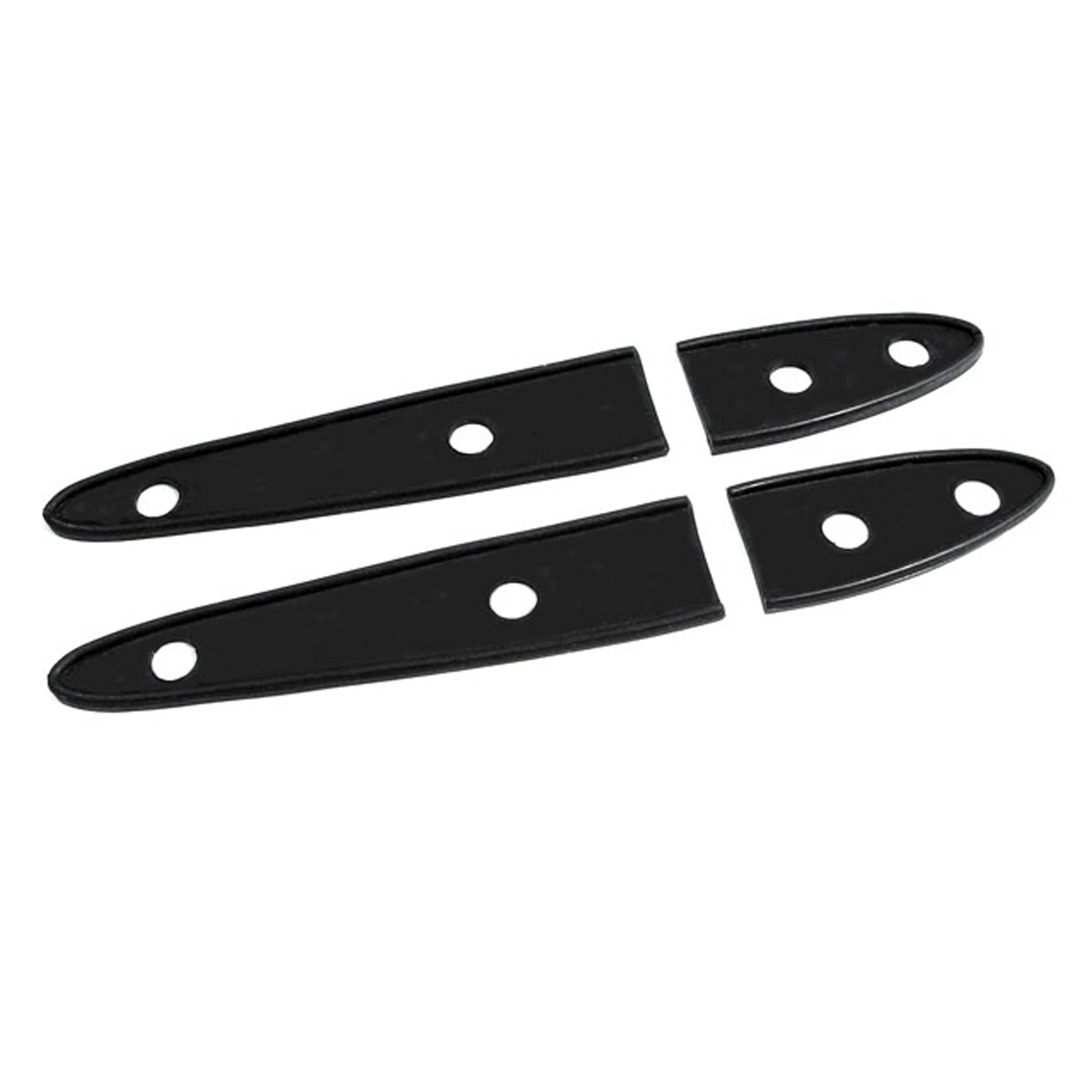 1957 Triumph TR3 Trunk Hinge Pads. 1-1/8" X 7" long. Set-MP 999-EETrunk Hinge Pads. 1-1/8" X 7" long. Set
1957 Triumph TR3 Trunk Hinge Pads. 1-1/8" X 7" long. Set-MP 999-EETrunk Hinge Pads. 1-1/8" X 7" long. Set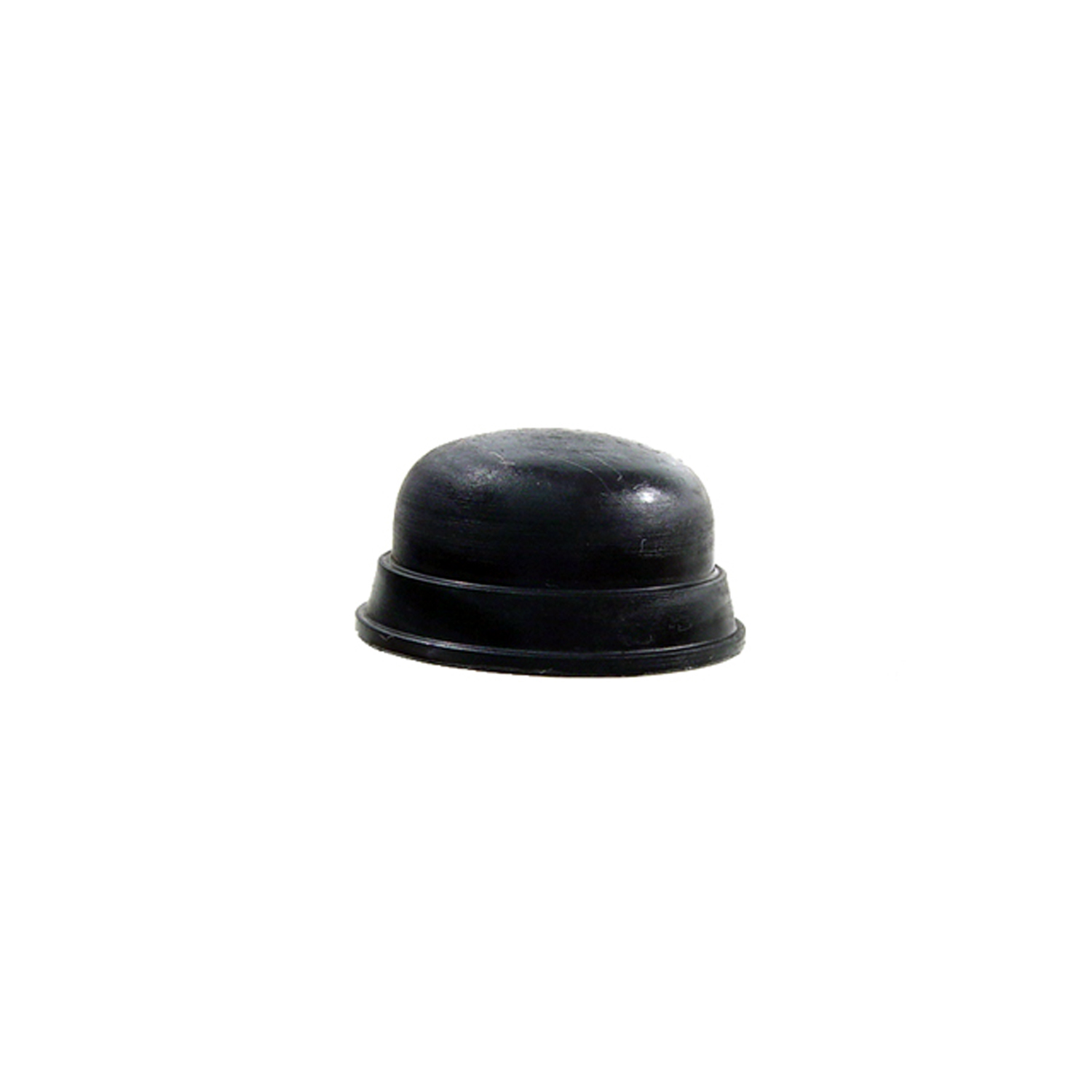 1957 Triumph TR3 Starter Solenoid Button Cover. Perfect reproduction. Each-RP 1Starter Solenoid Button Cover. Perfect reproduction. Each
1957 Triumph TR3 Starter Solenoid Button Cover. Perfect reproduction. Each-RP 1Starter Solenoid Button Cover. Perfect reproduction. Each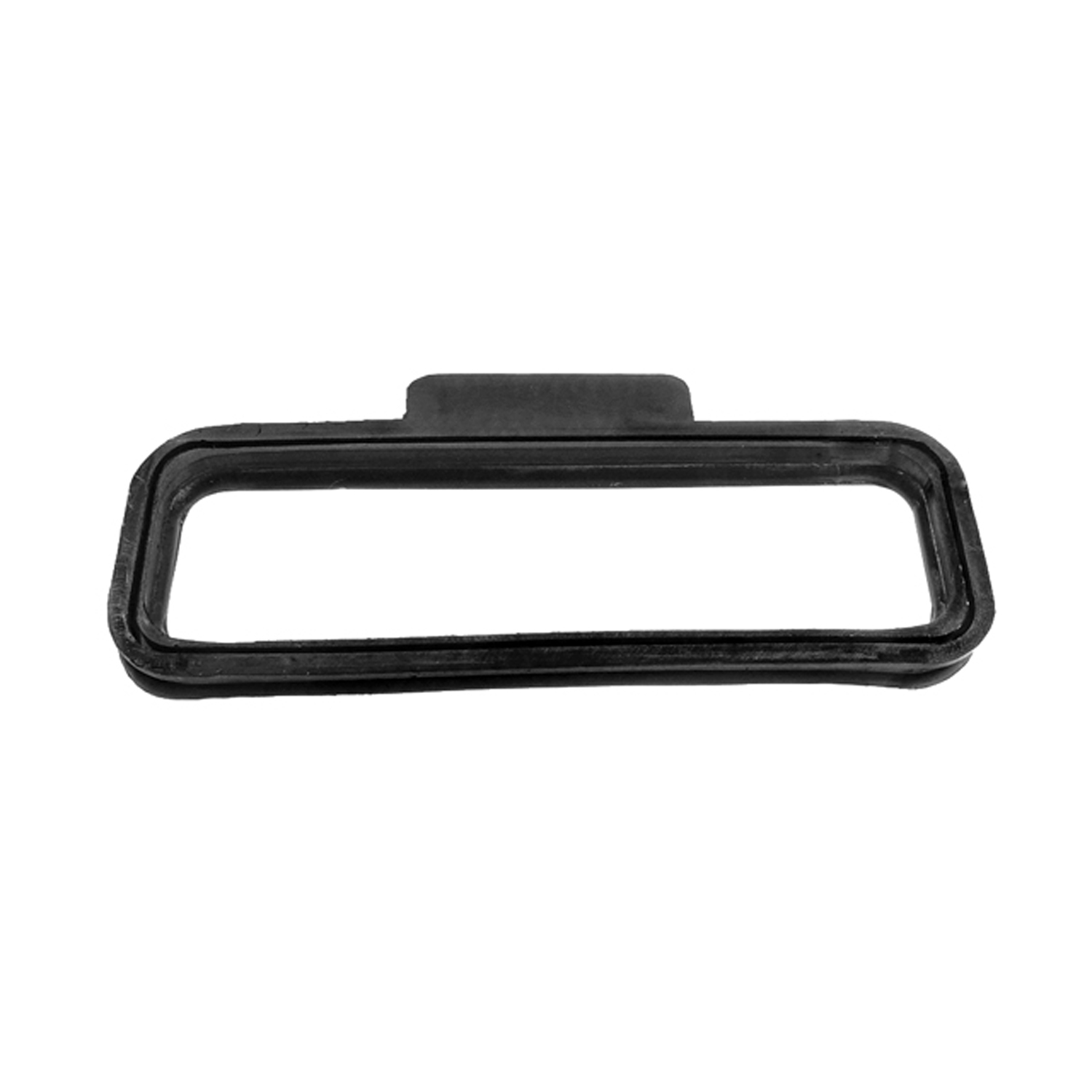 1957 Triumph TR3 Cowl Vent Seal-RP 100-ACowl Vent Seal. 2-1/2" wide X 7" long, with a 5/8" wide X 2-7/16" long projecting tab. Each
1957 Triumph TR3 Cowl Vent Seal-RP 100-ACowl Vent Seal. 2-1/2" wide X 7" long, with a 5/8" wide X 2-7/16" long projecting tab. Each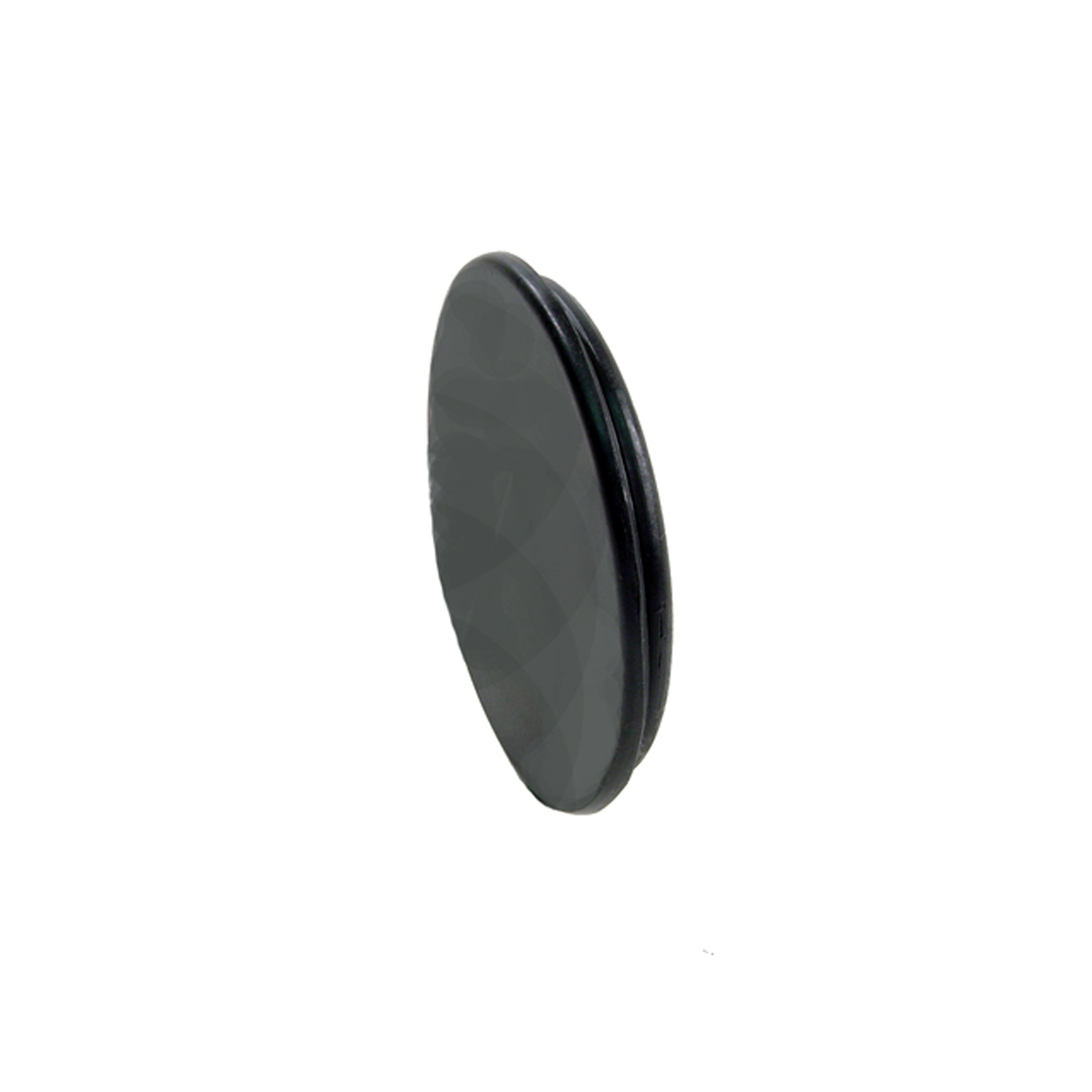 1957 Triumph TR3 Jack Socket Plug. Fits a 2-7/8" hole. Each-RP 91Jack Socket Plug. Fits a 2-7/8" hole. Each
1957 Triumph TR3 Jack Socket Plug. Fits a 2-7/8" hole. Each-RP 91Jack Socket Plug. Fits a 2-7/8" hole. EachWhy Choose Metro?
For over 100 years, Metro Moulded Parts has been the pinnacle of quality in classic car restoration parts. Our commitment to precision and authenticity in every component ensures a perfect fit and an OEM-level appearance.
- Expert Craftsmanship & Quality: Each part is a testament to our dedication to reliability and perfection, crafted from original designs and thoroughly tested.
- Advanced Technology: We use cutting-edge techniques to create flawless, long-lasting parts that surpass others in performance.
- SuperSoft Sponge – The Ultimate Door Seal: Not only are our door seals 30% softer than competitors', but they're also guaranteed to never leak. They effectively reduce wind and road noise, enhancing your classic car's comfort and driving experience.
- Proudly American: Our parts are a product of American craftsmanship, made in the USA with a spirit of excellence and heritage.
- Unrivaled Warranty: We back our products with a 30-year industry-leading warranty, a testament to our confidence in their quality.
Join us in preserving the legacy of classic cars with parts that are crafted for perfection, not just made.

